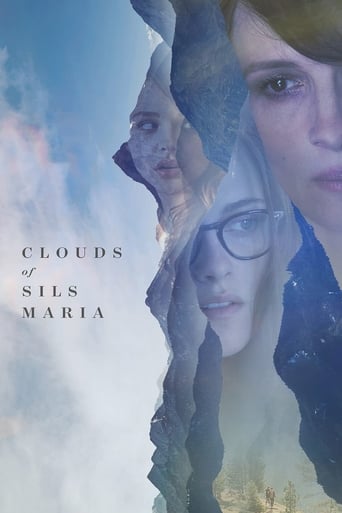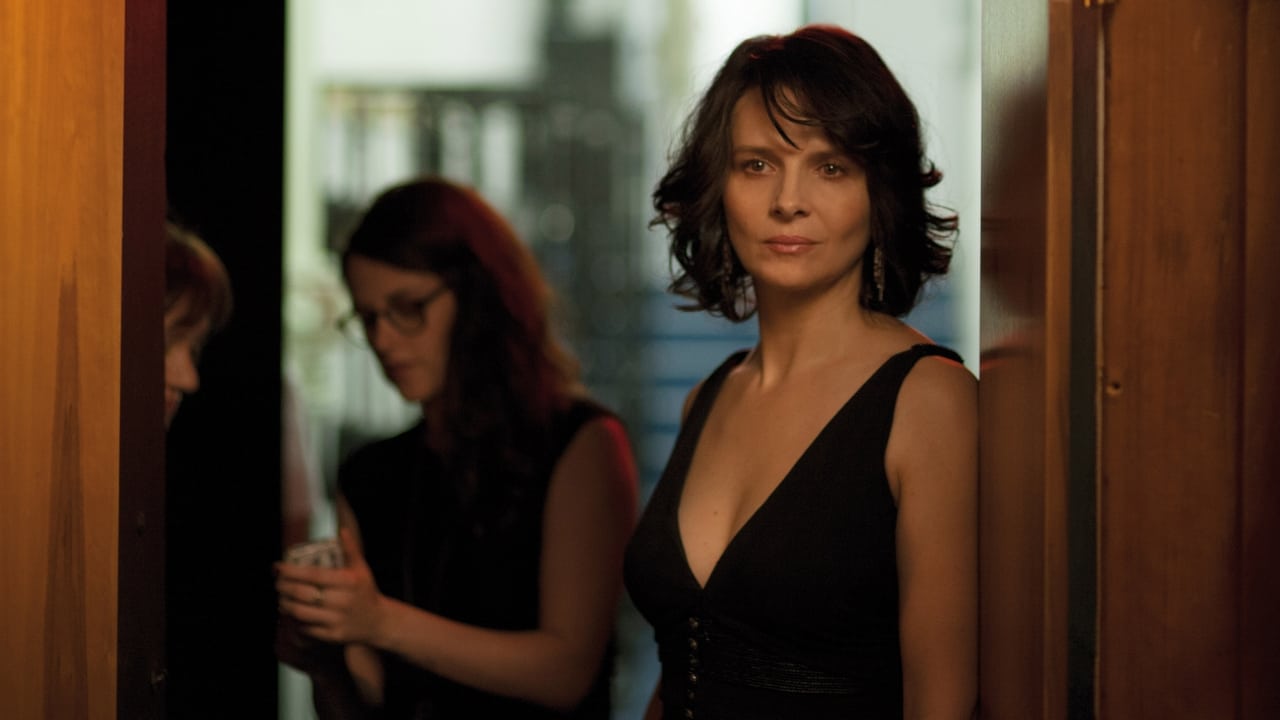paul2001sw-1
Olivier Assays makes talky films about affluent people; but typically, they're thoughtful and interesting. 'The Clouds of Sils Maria' is, I believe, his first movie in English; and focuses on an actress, played by Juliette Binoche. She's about to revisit the play that made her name, but in a different, older role: this brings into light her own ambiguous feelings about ageing (and about the way that society views an older woman); there are also parallels between the themes of the play and her own real-life relationship with her assistant. It's very urbane, but one's sympathy for Binoche's character is limited by the fact that she is so damn spoiled - she's not especially diva-esque, but she nonetheless is surrounded at all times by a (small) entourage, though often they have their own motivations for "helping". One can wonder if her state of disquiet isn't just the by-product of being considered unusually important by others, a manufactured crisis in a pedicured life. Overall, I liked the film, though it lacks the emotional connection of Assayas's best.
mirkobozic
Juliette Binoche couples up for the very first time with Kristen Stewart in a movie about the famous actress Maria Enders (Binoche) preparing for a re-staging of the piece that made her famous, only this time in the role of the older of the two heroines. She has a very hard time coming to terms that she's past her prime and can't play certain roles any more. Together with her assistant Valentine (Stewart) she travels to the Swiss mountain hideaway of her late mentor to study the text and go through the scenes again. This becomes a painful journey into self-reflection forcing her to face her inner demons, which is aided by Valentine's confrontations with her. In certain moments, we're left to wonder if the things are saying are from the Maria's script or the characters themselves, which turns the film into a multi-layered experience dense with dialogues that carry all the drama. The contrast between the glamorous public life and the delicate, quite intimacy of Maria's private life is a take on how it really feels to be famous nowadays, or what happens when you go back home, and take off the dress and the jewels. Binoche has the ability of inhabiting all her roles with some sort of delicate melancholia that occasionally falls over the threshold of suppressed lust. This is evident here too, as we're left wondering if there's any sexual tension between her and Stewart. I didn't expect much from her but here she proved a worthy sparing partner to Binoche. Chloe Grace Moretz shines as well in the small role of Maria's co-star, the troubled and chaotic teenage diva. This little gem of a movie shares some similarities with Sunset Boulevard, Billy Wilder's 1950 masterpiece with Gloria Swanson as the deluded silent film diva Norma Desmond who lives in a dream world where, enabled by her butler, she still believes to be a star. Both films address the subject of psychology and pressures of fame, which always comes at a price and consequences some people don't handle very well. In particular, it's about accepting frustrating changes without the luxury of doing it out of the limelight.
inkslayer
Clouds of Sils Maria is about a renowned actress, Maria Enders (Juliette Binoche), who must confront her past demons as she reluctantly prepares for the part of an older woman in the same play where she once had the young starlet's role.The problems with Clouds of Sils Maria are many. Here are just a few:1. The writer / director is male. Men should not write female dialogue because they cannot get inside our heads. All three actresses come off highly masculine-sounding. The result? They show no vulnerability and give us nothing female movie-goers can relate to.2. The direction. Kristen Stewart and Juliette Binoche showed no range or femininity. Especially, Ms. Stewart. This is the director's fault. 3. Editing. Scenes abruptly stop. Scenes go nowhere. Example: Are we to guess that because Stewart's character is vomiting on the side of the road, she is pregnant? And why does Stewart's character just abruptly disappear from Maria's employ? Why does Maria's hair go from shoulder-length to butch? For her part in the play? Of course that is the reason. But we shouldn't see her head of hair just go from point A to point B with no explanation. It's little things like that...Clouds of Sils Maria would have been much better if told without a lot of the unnecessary extraneous nuggets the writer included like the boyfriend and his wife's attempted suicide. Both unnecessary characters.Clouds of Sils Maria would have rolled in like the real Clouds of Sils Maria had a female directed. A female director would have been able to help find the actresses' unique voices in their characters' flaws, and strengths, as women.In addition, the story would have been richer if Chloe Grace Moretz's character had physically come into the story much sooner, and the writer had nixed the storyline about the boyfriend and his wife's suicide attempt, focusing more on- and building up to- Binoche and Moretz's confrontation and collaboration. Lastly, if the director was trying to show us at the end of the movie that Maria DID have an epiphany, he definitely didn't allow Ms. Binoche proper time and acting to transform herself to show she had that epiphany. The movie just abruptly ends. Don't waste your time with Clouds of Sils Maria. Just because it was officially selected in three film festivals doesn't mean it is a well-written or a well-directed movie. In this case, it probably means the film festival directors selected the film to draw in audiences using the stars' names and popularity.If this were a perfect world, and people gave a crap, they would insist more female writers/script doctors and more female directors are at the helm of every movie where the subject involves more than one female.
siderite
The great performances of the actors in the film are offset only by the stubbornness of the director to not display anything else. Complex characters played brilliantly by Binoche, Stewart and Moretz express so many different emotions related to the female psyche - after all, the film was written at Binoche's challenge to Olivier Assayas to make a movie about women - yet they refuse to describe any coherent one character. I feel that this is on purpose, as all three women are basically just facets of the same archetypal female.With this material and these talented women, it could have been a great film, however Assayas' work is defiled by his own ego. The stories of the characters interweave with his life and work, with connections to some of his films, including the one that he wrote for Binoche for her first major role and reminding, for no good reason, of Ingmar Bergman's work. In the end, when you are left wondering "what the hell was this film about?", you realize that it is a lot about the guy that both wrote and directed it. Big surprise there!That being said, my conclusion is that it is a very difficult to rate a movie. Great performances, nice direction, good soundtrack and a plot that weaves into itself to tease the viewer into subtleties of emotion and understanding. Yet if you, like me, couldn't give a damn about Olivier Assayas, you will find it difficult to accept the ending that provides no resolution whatsoever. Perhaps it is a brush of genius, though: if it's really about women, then you only get a series of WTF moments including the final one. It's a play on a play about a play.



 AD
AD







